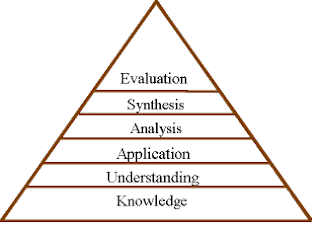
The
Teaching Expertise website allows you to sign up to regular e-bulletins on a variety of topics. One of the latest ones is Learning and Thinking Skills (linked to PLTS). To sign up go
here.
Below is a section from the latest bulletin:
Welcome to the new Learning and Thinking Skills e-bulletin. Every fortnight we will provide you with strategies and guidance for effective learning and thinking at key stages 3 to 5. Topics will include: learning preferences, thinking skills, creativity, problem solving, group work and more.
This week's e-bulletin continues our in-depth focus on developing 'independent enquirers' – the first of the six areas of the QCA's Personal, Learning and Thinking Skills framework – by looking at the value of enquiry tools when organising and making sense of information..
The model of enquiry shared in issue no. 4 –
the Enquiry Wheel – shows the main stages of a generic enquiry process as well as linking them to related 'thinking tools' to support each stage. These thinking tools can be used as practical, structured activities that help make the skills of enquiry 'visible' and explicit to students. As students grow in confidence, however, and become ready to take more responsibility for mapping out the process they will follow – choosing relevant tools and resources – the Enquiry Wheel can also serve as a useful toolkit that students can learn to use independently. (See enquiry progression model shared in issue no. 3)
In our last issue, we looked at strategies relating to the first prerequisite of any successful enquiry - creating a 'need to know', including tools to help students devise their own enquiry questions. In this issue, we will look at three thinking tools specifically designed to help students make sense of the information they uncover. All three tools help students to process new information more effectively – ordering and organising it so that it becomes both more manageable and more memorable. These tools are:
* Relevance Checker
* Knowledge Mapping
* Concept Mapping
Taken together, they involve students in collecting then sifting through information for its relevant to the area or domain of enquiry (Relevance Checker); constructing categories that provide conceptual control over territories of information (Knowledge Mapping); and exploring relationships within that domain (Concept Mapping).
Enquiry Tools for Organising and Making Sense of Information
Thinking tool no. 1: Relevance Checker This thinking tool is designed to help students filter the information they have gathered for its relevance in relation to their enquiry question. Many students find it difficult to discern relevant from irrelevant information, particularly when browsing the internet. The nature of the question chosen – open, closed, broad or narrow in scope – will affect the criteria they will use for making judgments about relevance. As with all three tools, it is crucial, therefore, that students have first identified the enquiry question that will guide their research. The Relevance Checker also encourages students to look at degrees of relevance; prioritising ideas and information on the question, and discussing justifications for their choices.
Relevance Checker: Instructions 1. Students can work individually, in pairs or groups, at a board or wall space on a large sheet. Alternatively, groups can work around a table using A3 or A4 sized sheets.
2. Each student brings along one or more sources of information that they have discovered during their research, which they think might help them/their group to answer an enquiry question. Depending upon the teaching focus, ability level or stage of the enquiry, the information shared could be:
* A book, article or website
* A single piece of data or data set
* A key idea, argument or interpretation or
* A picture or diagram
The information can be written on separate cards or post-its. Pictures and longer pieces can be labelled, numbered or coded. Longer pieces can also be 'tagged'; in other words, the key ideas within the source are extracted and written on separate cards in preparation for the Relevance Checker activity.
3. Students are given a Relevance Checker Template and should write their key question in the centre. Alternatively, students can draw their own template.
4. Students work through the information they have uncovered, deciding which items are relevant or irrelevant to the key question. If they decide that an item is relevant, they must consider the degree of relevance in relation to the question and place it at an appropriate place within the template.
5. Students then give feedback on their decisions, justifying their choices and decisions.
Relevance Checker: Teaching tips For students who would benefit from more 'structured' enquiry – the first stage of the progression model shared in issue no. 3 – each group could instead be given a pre-prepared set of cards with words, pictures, short phrases or longer extracts, each representing both relevant or irrelevant information for a given enquiry question. Students then work through the cards, deciding whether each one is relevant or irrelevant to the key question and placing relevant cards in an appropriate place within the template. If all groups are working with the same data set, they can then give feedback on their decisions, justifying their choices if they happen to contrast with the decisions of another group.
The Relevance Checker is also a useful revision tool for exams, as it encourages students to think about the most effective and relevant responses to questions.
Relevance Checker: Talking about thinking Students may find the following words useful to help them talk about their thinking:
* relevant
* irrelevant
* useful
* reliable
* important
* significant
* criteria
* judgement
* decision
* evaluate
Other talking points might include:
* How did you decide whether an item was relevant?
* How did you decide upon the 'most relevant' items?
* Can an unreliable source be relevant?
* When might 'deciding what's relevant' be a useful skill to have in everyday life?











































